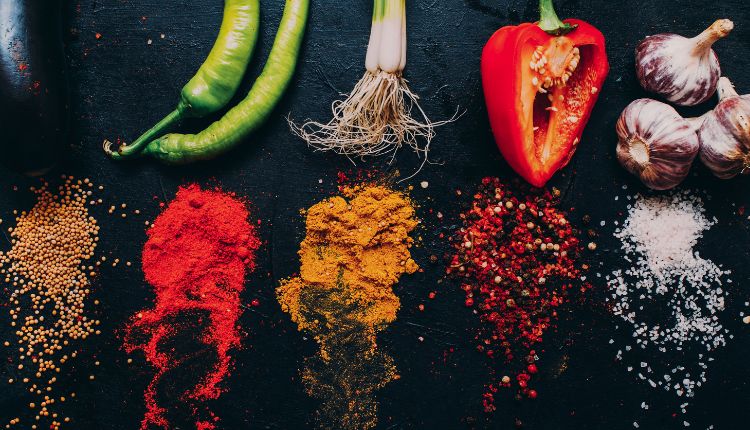Sustainability and Ancient Culinary Arts: Why We Need to Get Back to Our Roots
Life in the 21st century looks much different than in the first century, but there’s one thing that connects them: food. Food is a central part of human life and has been since the beginning of time. It’s much easier to obtain and comes in many different forms today, although humans cause more harm than good with production.
Here’s the history of cooking and how people can learn from their ancestors to increase food sustainability.
What’s the History of Cooking?
Various methods have developed over the years, but cooking is nearly as old as humans themselves. Ancient humans’ lives improved significantly when they discovered how to make fire. They used the hot flames to cook meat, making it much easier for them to digest and gain nutrients. It was also safer because fewer bacteria were present. Research shows early people also used boiling to cook food and produce hot water.
After discovering fire, the next significant innovation was agriculture. Ancient humans knew how to hunt and gather, but learning to sow and harvest crops was a game changer. Early farmers ran into problems with poor soil or problems with pests. Over time, agriculture improved with crop rotation and other intelligent techniques to attain better yields. Farming changed from being necessary for survival to something you can make money doing.
Fast forward to the 21st century, when making meals is much easier. You likely have many tools in your house to keep food fresh and prepare it how you like it. Most countries have laws regulating food inspection and ensuring safe meat, dairy and produce. There are also many ingredients to choose from.
What Is Sustainable Gastronomy?
One way to tap into your roots is with sustainable gastronomy. Gastronomy refers to studying food and culture, in which astronomists examine cooking methods and learn about nutrition. Sustainable gastronomy takes it a step further and explores environmentally friendly food culture.
As food awareness grows, organizations try to help people understand what goes into their meals. For example, the United Nations (UN) has designated June 18 as Sustainable Gastronomy Day. Each year, the UN and other entities use this day to emphasize being smart about food and recognizing the importance of its sourcing.
Sustainable gastronomy is what people should aim for to improve the planet. You should scrutinize where your food comes from and how the farmer or agricultural worker produced each vegetable or raised their animals. Did they use pesticides, growth hormones or other questionable practices?
Sustainability improves your and the planet’s health with locally sourced nutritious food, so humans could benefit significantly by focusing more on it. Studying sustainable gastronomy can improve the Earth and your understanding of the nutrition basics your ancestors learned.
Why Is Food Sustainability Important?
Sustainability is becoming a priority worldwide as people become wiser about how companies impact the environment based on production. Numerous industries have contributed to climate change, and food and agriculture are two.
Food sustainability is important because it significantly impacts how future generations will be able to eat. Innovative practices will help, but more change is necessary to put the planet on track. Some harmful effects of today’s food and agriculture industries include:
- Emissions: The world population has climbed above 8 billion, emphasizing the high demand for agricultural resources. Companies are clearing land for crops and raising more livestock, leading to greenhouse gas (GHG) emissions. The Environmental Protection Agency says agriculture accounts for 22% of GHG emissions annually.
- Waste: Producing nutritious food is advantageous for humans, but what is it good for if it goes to waste? The United States struggles with food waste. Annually, Americans throw away over 100 billion pounds of food, which is about 40% and worth more than $400 billion.
- Supply chains: Supply chains have become problematic for businesses and customers since the pandemic. Food sustainability means shortening the supply chain and sourcing food locally. This way, you get fresh food and reduce the GHG emissions necessary for production and transportation.
How Can You Improve Your Food Sustainability?
Twenty-first-century humans are a long way from their ancient ancestors, but you can still learn a lot from them. These strategies show how you can dig into your roots and become more sustainable in your diet.
Paleo Diets
A direct way to connect with prehistoric humans is to try the paleo diet. This meal plan started in the 19th century when some proposed eating like primitive people. It’s become popular today among people who want to eat healthier.
The paleo diet consists primarily of meat, fruits, nuts and vegetables. You’d likely see prehistoric people eating these foods thousands of years ago. One notable absence is dairy, which did not become prominent until much later.
The paleo diet is sustainable as long as you carefully source the food. Meat can contribute heavily to GHG emissions, but poultry produces much less.
Vegan Meals
Vegetables have been a staple of human diets for thousands of years. They provide vital vitamins and minerals for your body and keep you healthy. Some have turned to plant-based diets like vegetarianism and veganism for animal welfare, which also helps with sustainability.
Plant-based foods have a much lower carbon footprint than meat. Studies have shown that fruits, vegetables and nuts have low environmental impacts and are better for your health. Try incorporating meat substitutes like jackfruit and black beans to make vegan meals.
Farmers Markets
Fruits and vegetables are remarkable for your health. Still, it matters how you source them. Fruit that travels a long way has a higher carbon footprint due to the energy needed for transportation. Locally sourcing your produce promotes sustainability and is closer to how human ancestors ate their food.
Washington apples may be tasty, but if you live in Tennessee, you may be better off buying them locally. One terrific place you can get fresh produce is the farmers market. Many markets locally source their food, ensuring freshness and a shortened supply chain to deliver the products.
How the History of Cooking Can Help Today
Food has always been and will always be a necessity for humans. The difference in the past, present and future is how people obtain it. Production has improved because over 8 billion people need to eat, but harmful practices have damaged the environment.
One way to help the Earth is by looking back at the roots of human civilization. People should emphasize sustainable ways to produce meat, fruits and vegetables for bodily and planetary health. Food sustainability is important as the world faces the effects of global warming. Understanding the history of cooking and sustainable gastronomy can improve your life.



Comments are closed.